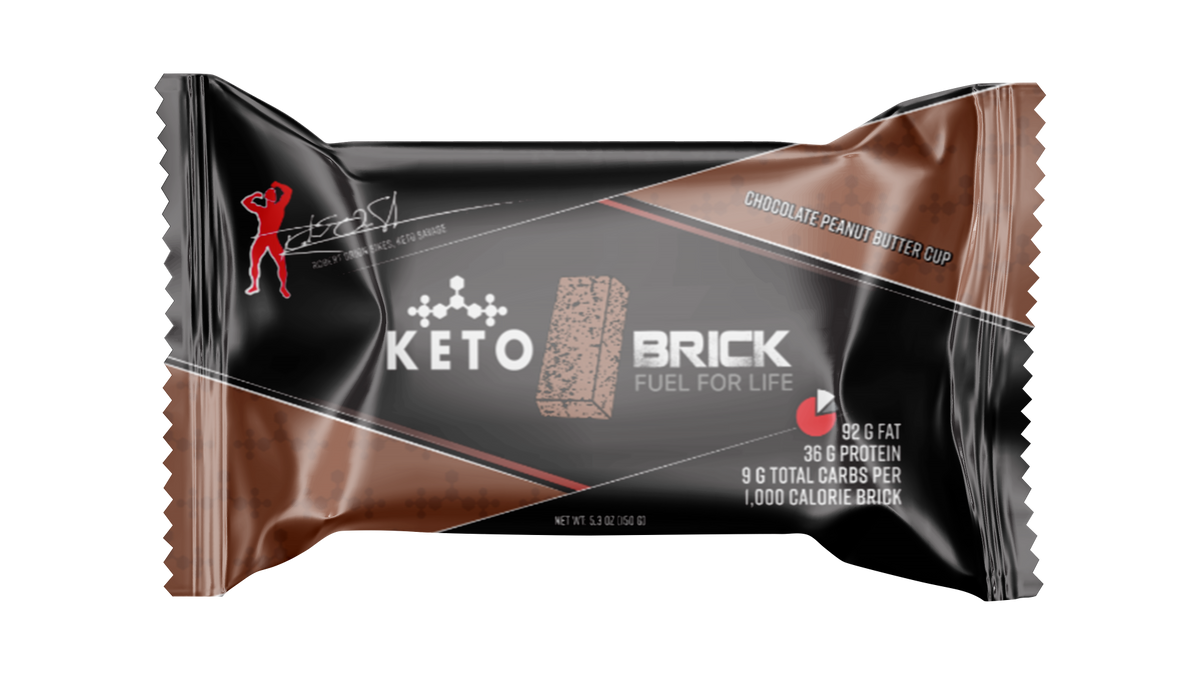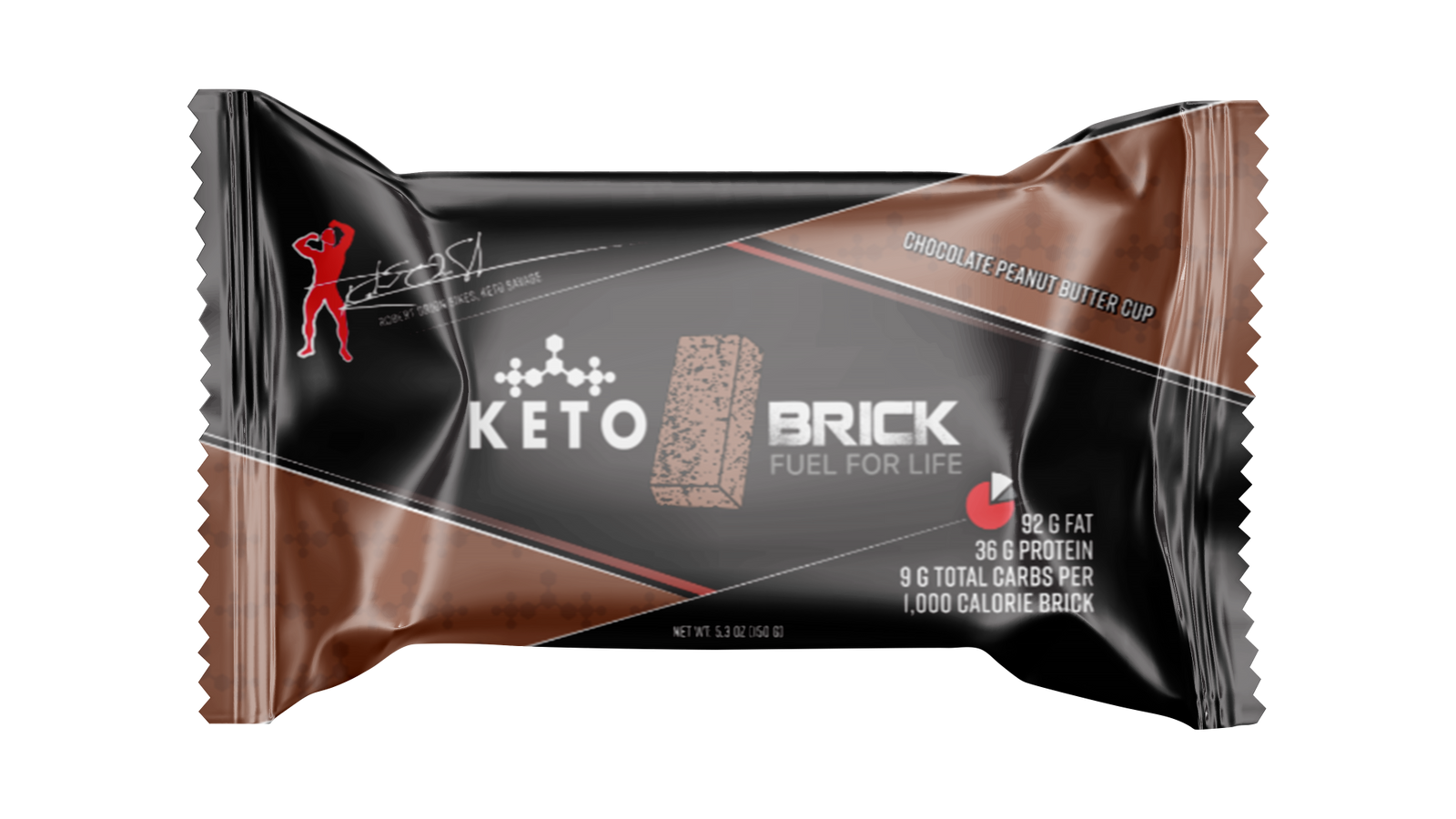
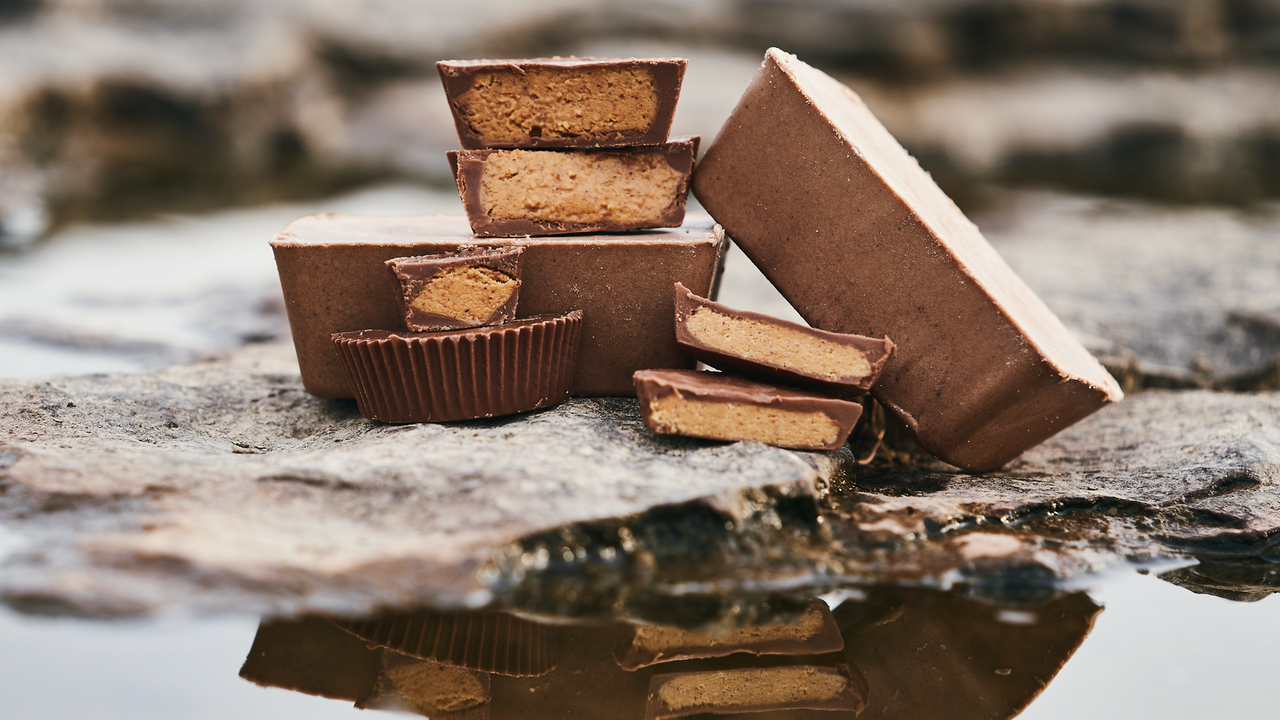
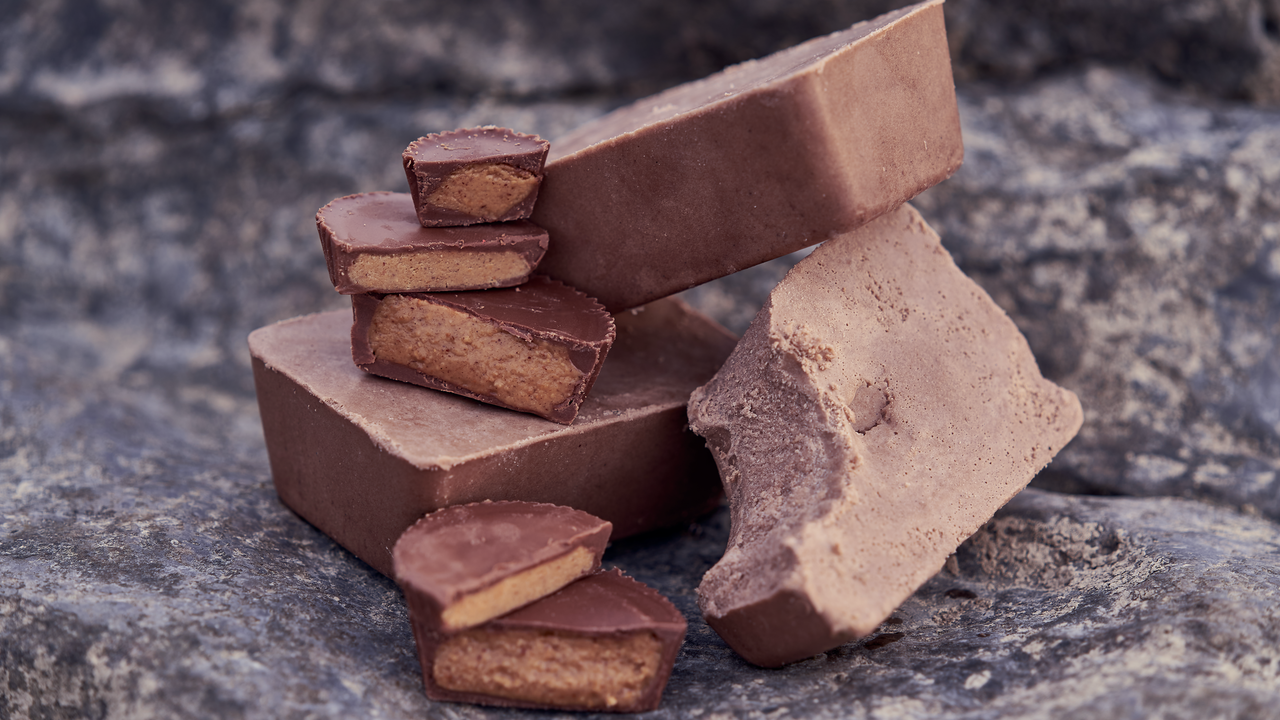
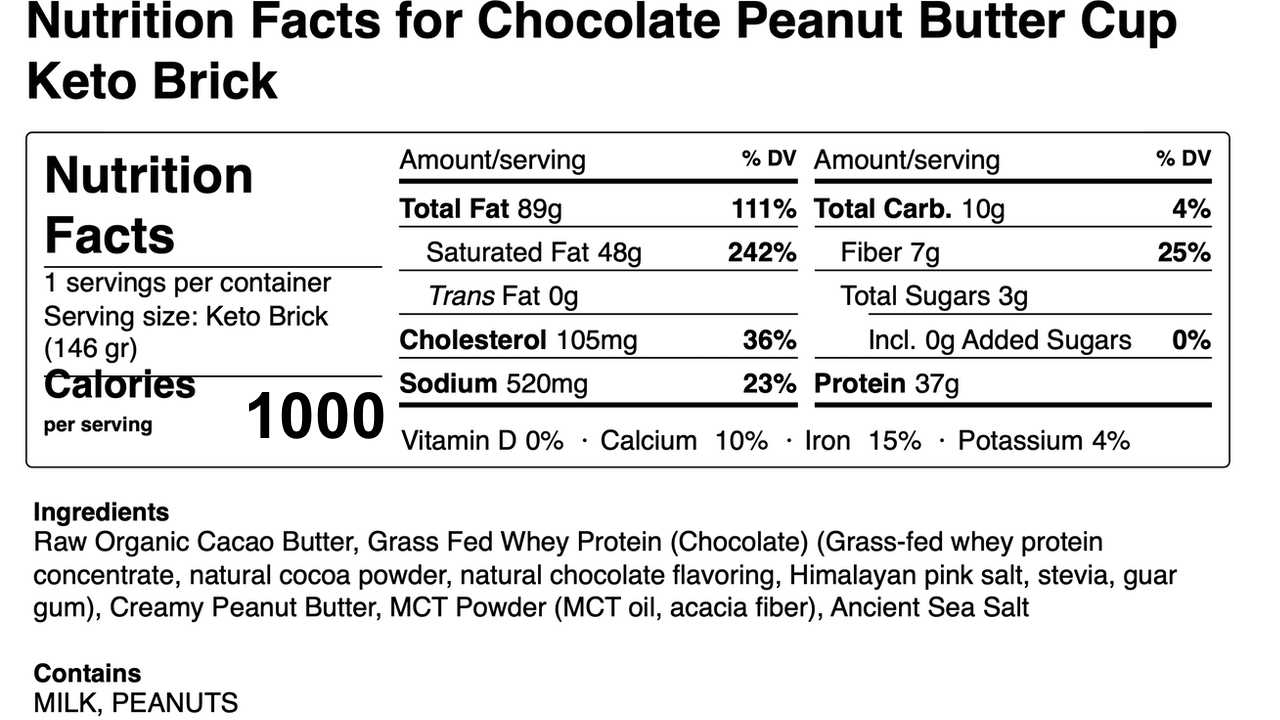
Chocolate Peanut Butter Cup Keto Brick
Chocolate Peanut Butter Cup Keto Brick!
This beauty only has 10 GRAMS OF TOTAL CARBS! It's also made with 100% grass-fed whey!
INGREDIENTS
Ingredients Matter
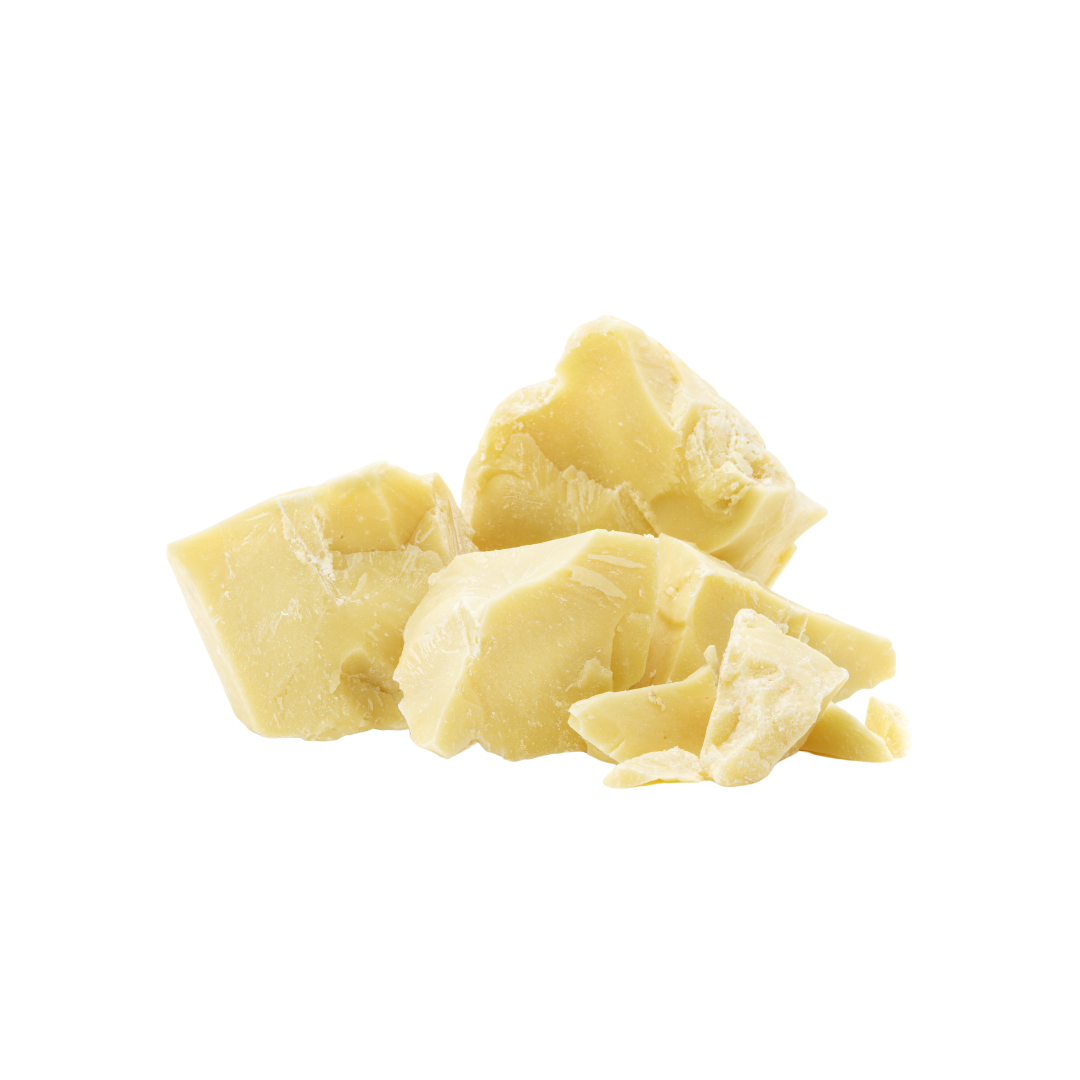
RAW ORGANIC CACAO BUTTER
Best Source of Stearic Acid
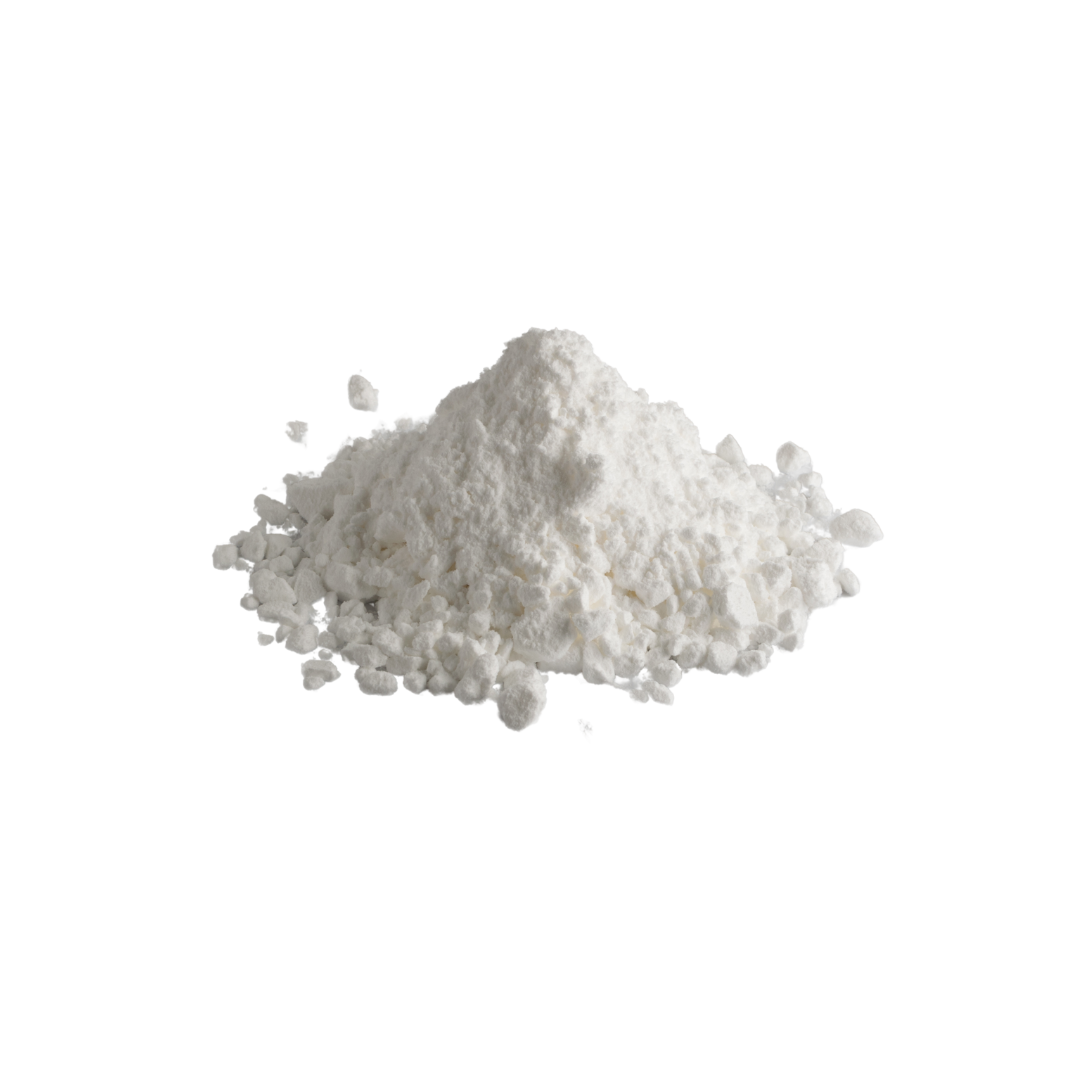
PURE MCT POWDER
Medium Chain Triglycerides
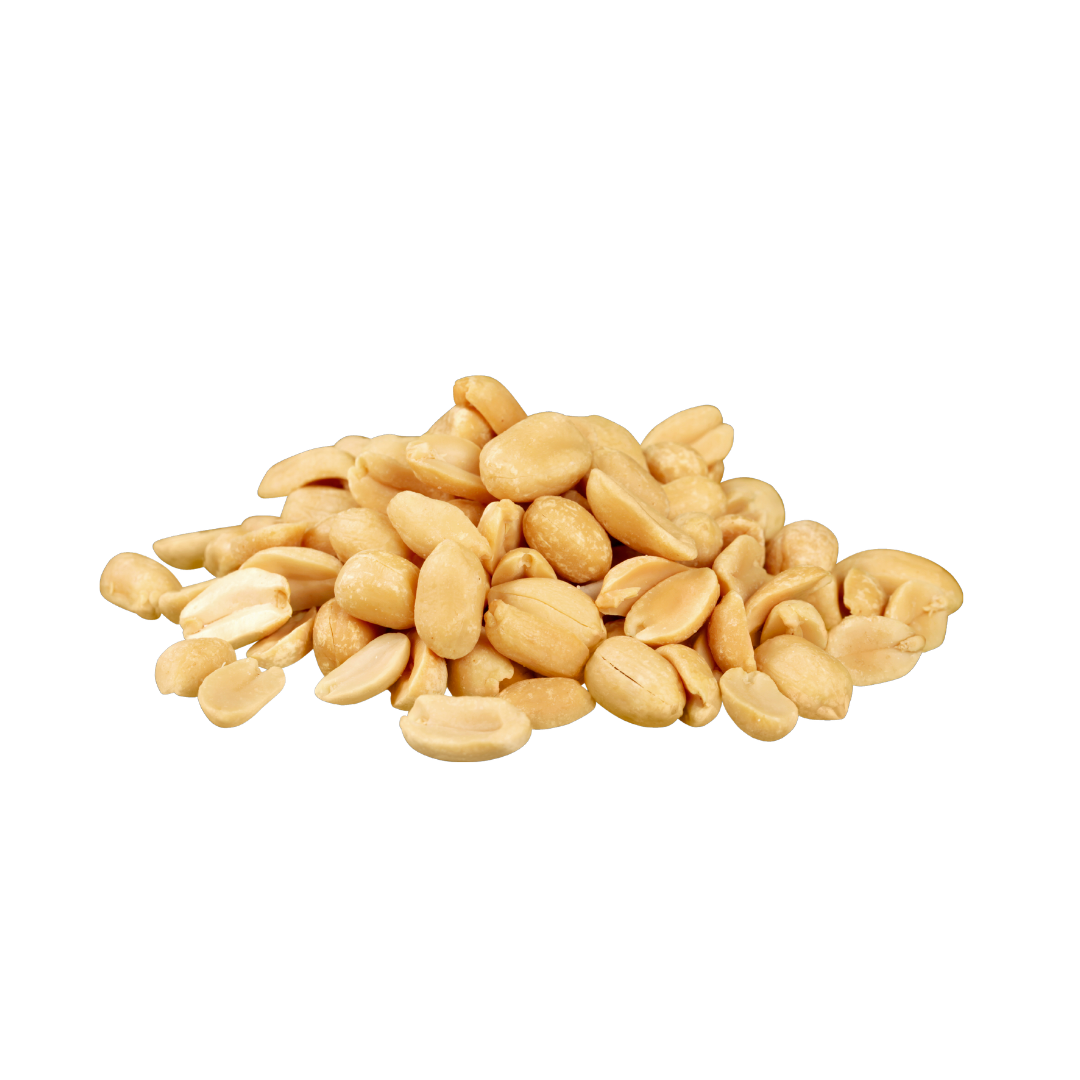
CREAMY PEANUT BUTTER
Great source of fiber and healthy fats
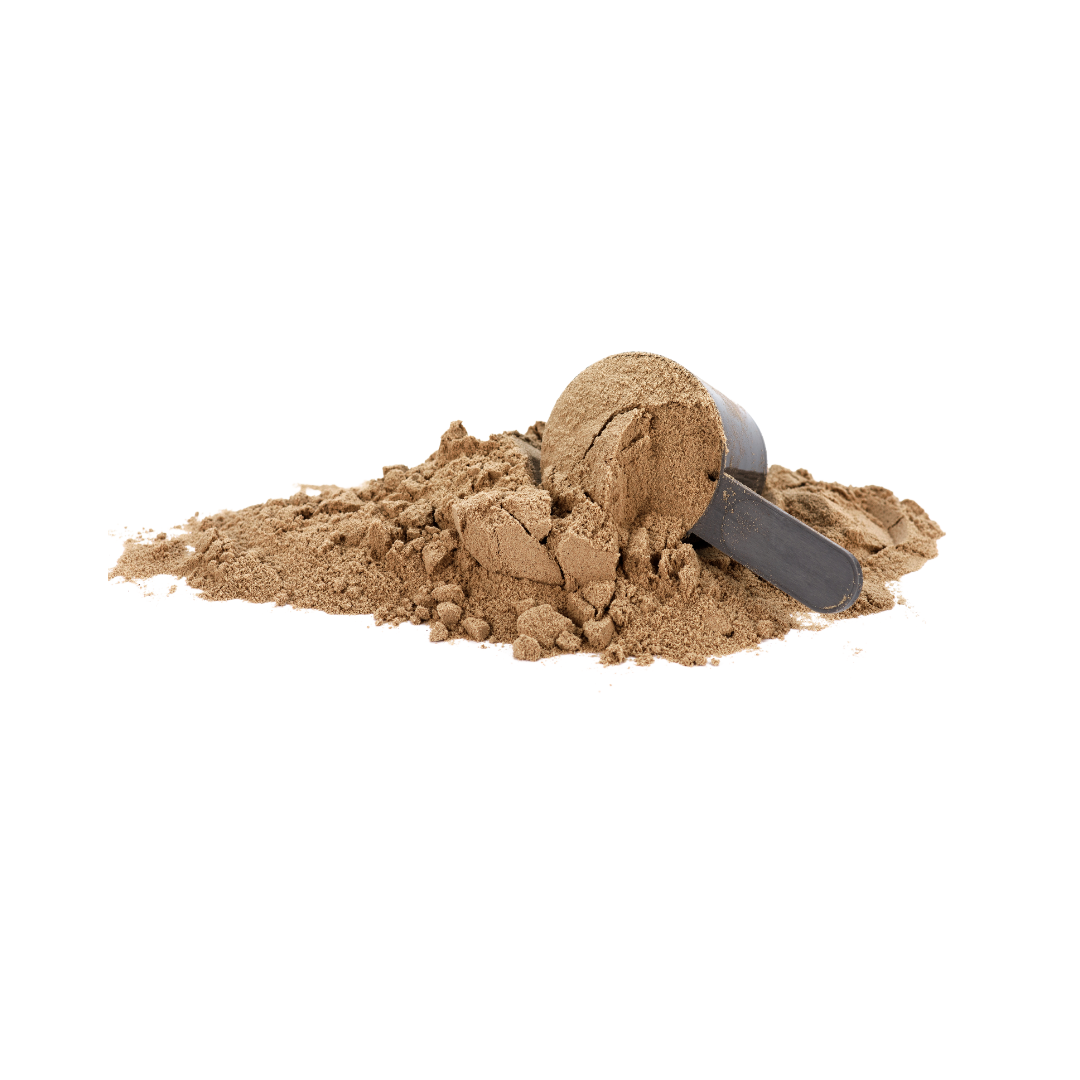
Vegetable & Whey Protein Options
Sourced from the highest quality manufacturers in the U.S.
FAQS
-
Currently, only the Mocha Brick has caffeine, and it has 30-40mg per brick.
-
The carbs come from trace sources such as the ground flax, protein powder, raw cacao nibs, and coconut chips (depending on the flavor.)
-
Our whey is sourced from the highest-quality manufacturers in the US, offering a superior protein powder that is clean and great-tasting. These cows are grass-fed and pastured throughout the year as weather permits, and maintained on a strict diet of grasses, hays, and other silage throughout the winter months. Additionally, they are not administered hormones, antibiotics, steroids, or vaccines, ensuring the health and well-being of the animals and the quality of the finished product. Our whey protein is processed using cold-water microfiltration technologies, as well, to retain the bioactive protein subfractions and reduce denaturation as much as possible. You can rest assured of the quality of these ingredients from our dairies to your household.
-
Yes, the majority of our bricks are vegan and made with a high-quality plant based protein powder. We use an incredibly high quality and easily absorbed pea protein. We also DO NOT use any soy in our bricks.
We do however currently offer a Chocolate Malt and Chocolate Peanut Butter Cup flavor that contain 100% Grassfed Whey Protein Concentrate. Some of our seasonal and limited edition flavors also use 100% grassfed whey protein
-
Yes! Every single Keto Brick is COMPLETELY gluten free!
-
We understand and share the concern about natural flavors in some products. In the case of the Keto Bricks, natural flavors make up a very small percentage of the formula. All of our Bricks are made with a variety of different protein powders. The protein powder makes up less than 1/3 of the Keto Brick. Within the protein powder, natural flavors make up a small percentage of the powder. I asked my protein supplier to dive deeper into this, and this was his response:
"We use the term "Natural Flavors" under the same FDA umbrella for any flavoring ingredients and incidental ingredients used in the creation of those flavors. This includes any natural botanical flavoring extracts such as cocoa powder or vanilla extract, along with carriers or gums such as gum acacia, rice flour, or maltodextrin. Because the flavors being used may include multiple extracts to provide a rounded, complex flavor system, we use the term "With Other Natural Flavors" to define the use of multiple natural flavors. No MSG or other unwanted ingredients that are permitted for use under the term "Natural Flavors" are used in the production of any of our flavors at any time."
I asked him if this was the case across all flavored protein powders across the board, and this was his response:
"The essential oils used in the creation of flavoring powders must be tooled onto a carrier of some sort in order to be maintained in a stable free-flow powder. This carrier is, in nearly every instance, a carbohydrate powder, whether it be maltodextrin, rice powder, or gum. Unfortunately, this will be the case in nearly every powder produced; we do not have any flavoring materials that are free from carbohydrate carriers. This would also be the case in any other protein powders on the market that are flavored; The carbohydrate carriers are considered to be part of the flavoring components and will fall under "Natural and Artificial Flavors" or "Natural Flavors."
This seems to be the reality for nearly all flavored protein powders. Interestingly, it goes beyond protein powder as well. Most of your flavored electrolytes, amino acids, pre-workouts, etc will contain some sort of Natural Flavors, most of which are bound to a carbohydrate source of some kind.
I include this write-up to provide complete transparency, as I do not desire to hide behind any shady ingredient label. Since we do the production of the Keto Bricks in-house, I can guarantee that the "natural flavors" make up a tiny percentage of the actual Keto Brick. So small that I have not been able to detect any adverse effects from a blood glucose/metabolism standpoint in myself or any others that have tested with the Bricks.
As always, if you have any questions on any of this, feel free to reach out and let me know! -
We do not add any additional sweeteners. However, there are small amounts of Stevia and Monk fruit in some of the protein powders that we use. For more info on the protein powders, see the above question about "natural flavors."
-
They do vary slightly between the different flavors, but they are all roughly 90g Fat, 30g Protein, and 14g TOTAL Carbs!
-
We do currently offer a peanut butter brick and toasted almond coconut that have nut butters in them but, rest assured, we take allergens very seriously here! Our other flavors do not contain nuts or nut butters. However, the coconut and toasted almond coconut bricks do contain coconut flakes.
-
Lecithin is a fatty substance that is found in your body as well as a multitude of plant and animal sources. Some of the most common types of lecithin include soybeans, egg yolks and sunflower lecithin. It’s also naturally found in foods like meat, seafood and dairy products.
Lecithin is an ingredient that’s added to certain foods as an emulsifier, helping stabilize mixtures and prevent different parts from separating.
Unlike soy lecithin, sunflower lecithin is non allergenic and is extracted from sunflowers mechanically via cold pressing rather than using chemicals as is the case with soy lecithin.Some of our flavors contain trace amounts of sunflower lecithin within the protein powder. I contacted my protein suppler to learn more and this was his response:
"The lecithin is considered a processing aid in the production of the whey protein concentrate as it is used for technical function but is included in insignificant amounts in the finished product." -
Protein, carbohydrates, fat, and alcohol are the food components that contribute calories to the foods that you eat. They, however, do not contribute to calories equally. Protein and carbohydrate contribute significantly fewer calories per gram than fat or alcohol. Common conversion factors, referred to as the 4-4-9 formula, are most often used by manufacturers to calculate calorie values for their products. More specific conversion factors based on food type, called Atwater factors, are commonly used by the USDA database to calculate calorie values for foods. These more accuracte calculations rarely equal 4, 4, and 9 exactly. Depending on the food, it may be closer to 3.4-4.27 and 8.37-9.2 respectively. Combine that with the fact that many of our suppliers round the nutrition statements on our ingredients slightly and it becomes increasingly more difficult to be exact. Short of placing a Keto Brick in a bomb calorimeter and acurately measuring each one scientifically in a certified lab, we are doing everything we can to get as close to the actual and accurate macronutrient numbers and calories listed on the Keto Brick packaging. As is true with all food types, these slight inaccuracies average out over time as long as you are consistent with your tracking methods and consumption.

